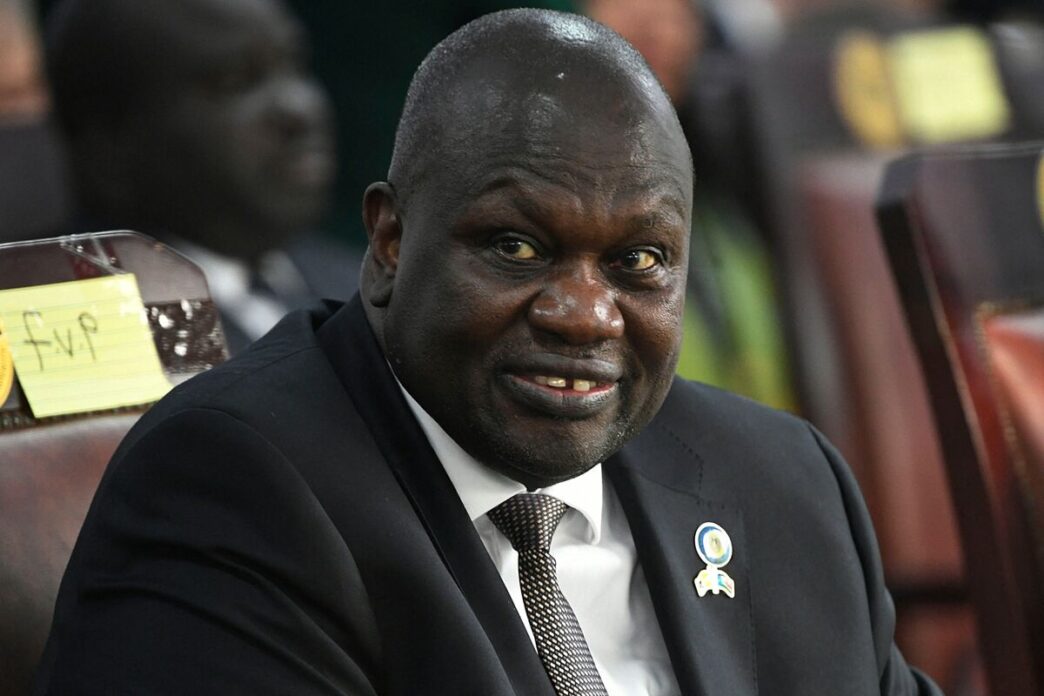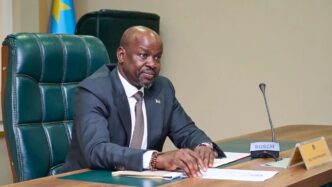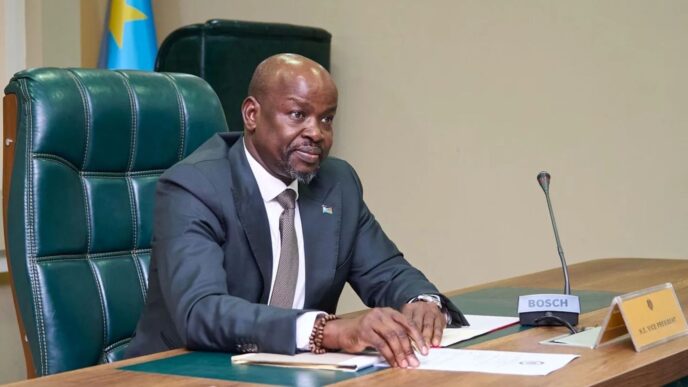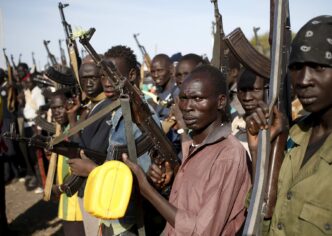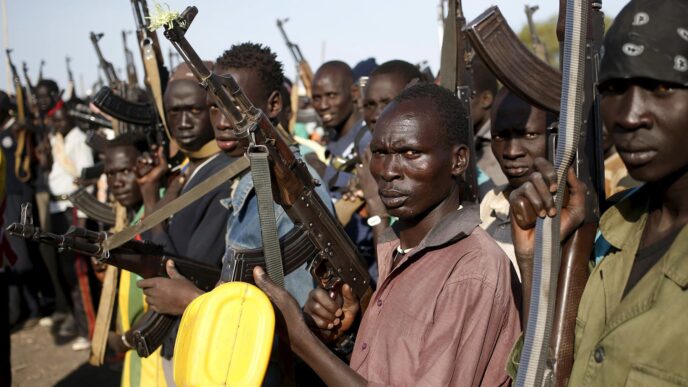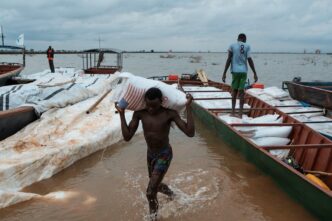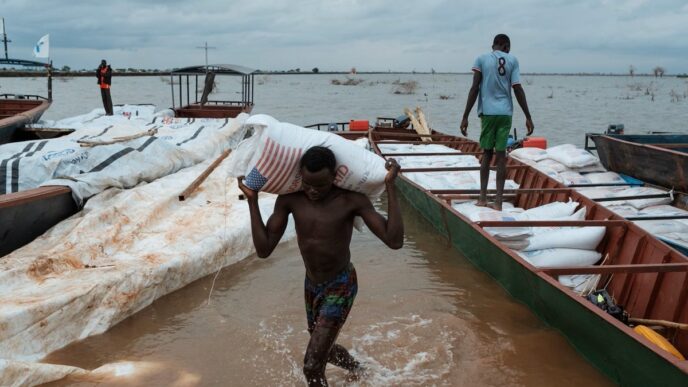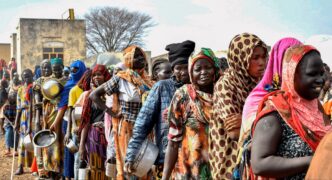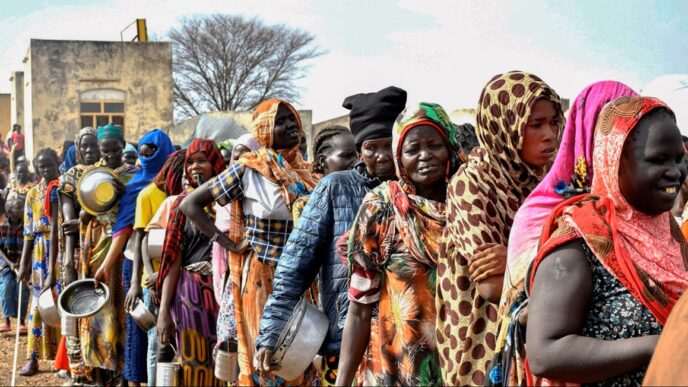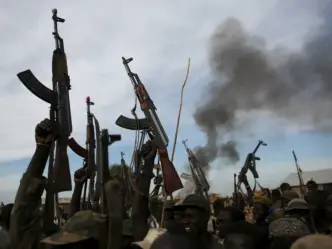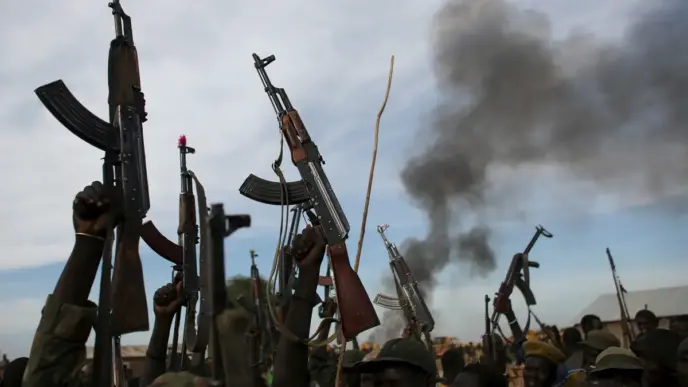South Sudan’s opposition figure, Riek Machar, said in court on Friday that his role as vice-president grants him immunity from prosecution for crimes against humanity.
As a longtime opponent of President Salva Kiir, Machar had been serving as his vice-president due to a peace agreement that concluded their civil war in 2018.
Last month, he was removed from his post after facing treason charges and allegations of instigating an attack by an ethnic militia on an army base in March.
“I am the first vice-president. I have immunity,” Machar said in his first statement to the court in Juba. “I will give a statement but I cannot and do not want to be investigated. If the time comes I will explain myself.”
Following the militia’s assault in Nasir County, known as the White Army, Machar was placed under house arrest, with the government reporting around 250 soldiers died in the incident. The White Army mainly comprises members of the Nuer ethnic group, the same as Machar.
He denied having commanded the attack, and his supporters argue that the trial is part of a plot by President Kiir to marginalize him and strengthen his grip on power.
In a statement given to investigators in April and presented to the court on Friday, Machar remarked that the Nasir assault was indicative of broader unrest that “the government needs to tackle”.
Although the trial was originally streamed live online, the court halted the broadcast on Wednesday as Machar and seven co-defendants began to deliver their opening remarks.
South Sudan achieved independence from Sudan in 2011 but quickly fell into a five-year civil conflict between the factions of Kiir and Machar, claiming approximately 400,000 lives.
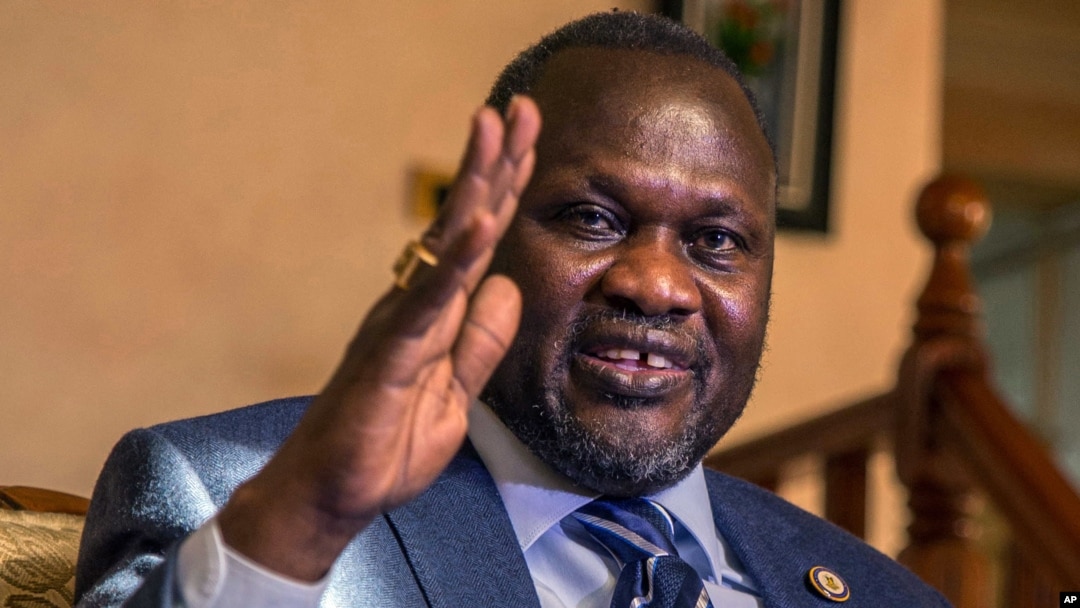
The peace agreement reached in 2018 concluded the violence and established a unity government, but the leaders consistently failed to organise elections or unify their military forces. South Sudan’s opposition leader, Riek Machar, on Friday told the court trying him for crimes against humanity that his position as vice-president made him immune from prosecution.
Machar is a long-standing rival of President Salva Kiir but served as his vice-president under a peace deal that ended their civil war in 2018.
He was suspended from his position last month after being charged with treason and accused of ordering an ethnic militia’s attack on an army base in March.
Machar was placed under house arrest in March, shortly after the attack in Nasir County by a militia known as the White Army, in which the government says some 250 soldiers died.
The White Army is largely drawn from the same Nuer ethnic group as Machar.
But he denied ordering the attack and his supporters say the trial is part of efforts by President Kiir to sideline him and consolidate power.
In a statement given to investigators in April and read out to the court on Friday, Machar said the Nasir attack was part of a wider phenomenon of unrest that “the government needs to address”.
The trial was initially broadcast live online but the court suspended the feed on Wednesday as Machar and seven co-accused began giving their opening statements.
South Sudan gained independence from Sudan in 2011 but quickly descended into a five-year civil war between supporters of Kiir and Machar, in which some 400,000 died.
A 2018 peace deal ended the fighting and created a unity government but its leaders repeatedly failed to hold elections or unify their armed forces.


 Trending
Trending 

